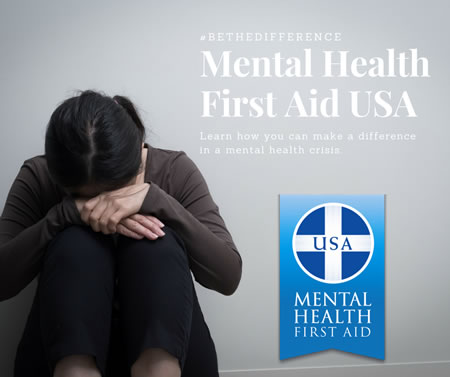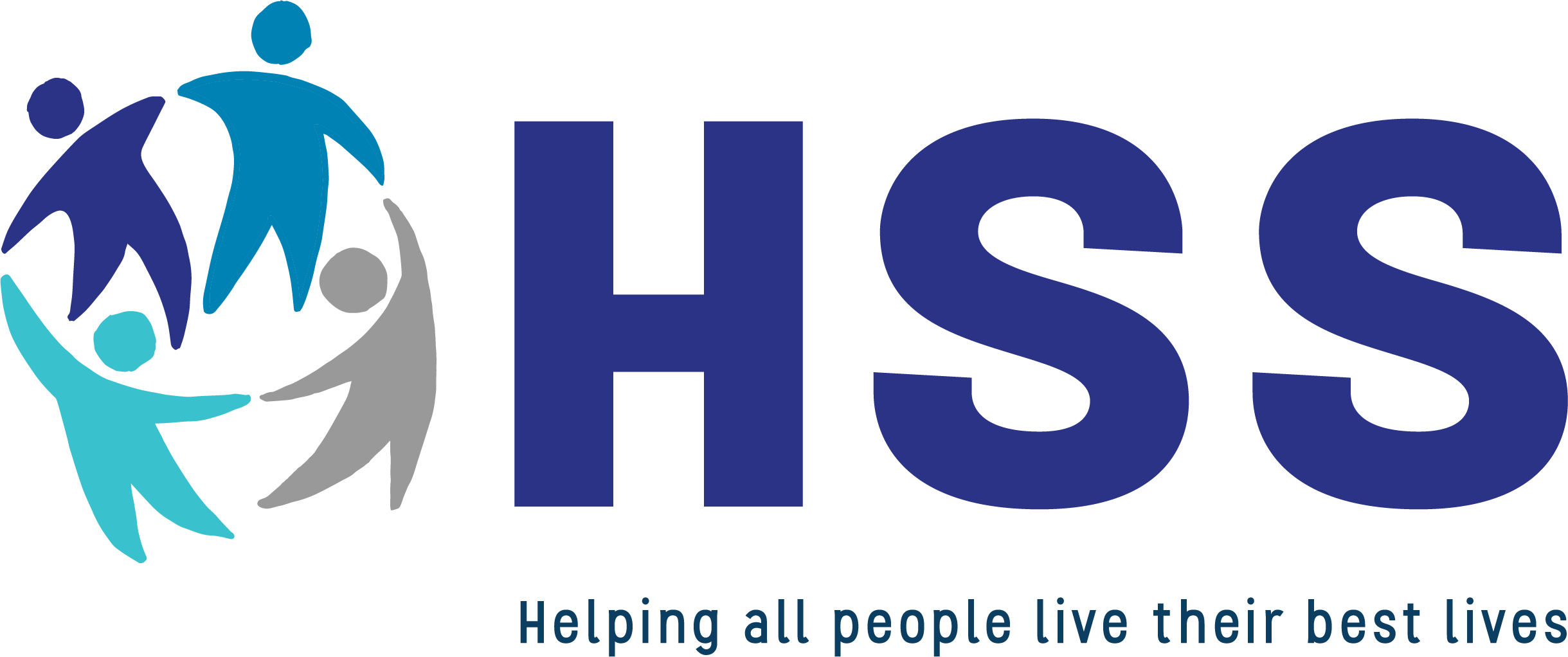
Mental Health First Aid Courses Teach Individuals – How to Help Someone in a Mental Health Crisis

By the looks of them, they weren’t excited about this day.
Even the most eager learners aren’t typically enthusiastic about being crammed into a tiny conference room for eight hours.
But this group – eight men and one woman – looked particularly pessimistic about this training session.
They were corrections officers – jailers in conversational terms – and this was Mental Health First Aid training from Human Support Services.
This was not regular First Aid; there would be no CPR skills being taught in this course. But the material they would learn – if they were willing – could just as likely save a life.
Mental Health First Aid teaches individuals how to identify, understand and respond to signs of mental illnesses and substance use disorders in their communities.
Like CPR, Mental Health First Aid can help save someone’s life in an emergency by teaching them how to respond when someone is in the middle of a mental health crisis.
The training also gives participants the tools they need to identify signs of a developing mental health issue in a co-worker, friend or family member, and intervene successfully.
Mental Health First Aid training, which can be offered to anyone in the community, is particularly helpful for first responders and corrections officers because it can help prevent the escalation of situations that are often already volatile.
For trainees who work in these high-risk environments, the tools provided might just help prevent injuries, arrest and in some instances, even death.
As expected, the training started out slowly. When the instructor talked about mental illness, a few officers expressed skepticism. Could this training really make a difference?
But as the instructor pressed on, she noticed a change. As she talked about the symptoms and the signs of anxiety and depression, she began to see their expressions change a little.
By the time lunch rolled around, an officer in the back raised his hand. He said his closest friend had been exhibiting many of the behaviors the instructor was describing.
The more she talked, the more the officer began to realize his friend was depressed. He wanted to know how he could help his friend.
The instructor shared real life scenarios and took the officers through hands-on demonstrations, walking them through what it might look like to approach a woman having a panic attack in a busy shopping mall.
By the second half of the day, the room was quieter and all the officers were more attentive.
As the instructor guided the officers through more role play exercises, more began to recognize signs they had seen in inmates and suspects.
The officers began to realize that what might look like intentional noncompliant behavior might actually be the result of a mental illness episode.
During one exercise, each officer took a turn trying to answer questions from a teammate while the instructor whispered negative comments incessantly in his ear. The exercise, which is intended to simulate what it’s like for someone who suffers from schizophrenia, was eye-opening for many of the officers.
Though Mental Health First Aid training is just a short one-day course, it can change minds and in turn, change lives.
Right now, Human Support Services only has one individual trained to offer Mental Health First Aid courses. We could offer many more classes if we had more instructors.
The more people who understand how to respond to someone who is having a mental health crisis, the better prepared we all will be to handle difficult situations.
Every Mental Health First Aid training helps our community take one more step toward understanding that mental health concerns are not something to fear.
If someone is developing or experiencing a mental health crisis, a listening ear and a little assistance may be all they need to get back on track. Please support Human Support Services in our efforts to educate the community.

